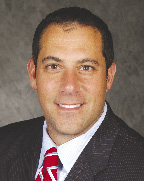In my first column, I discussed the need for real estate professionals to participate in the social media conversation and I provided an overview of the many online tools available to facilitate the process. This piece focuses on the critical first step to creating a social media plan: listening. Social media participants can generate a tremendous amount of value before posting a single comment, tweet, status update or actively engaging with other users.
Social media listening is the process of developing searches for online mentions, news and information - as well as establishing information feeds - to deliver highly relevant content on a set of keywords or topics as soon as it hits the web.
At Schneider Associates, we implement listening strategies on behalf of our real estate clients to identify project proponents and detractors, and understand community sentiment about a development proposal before, during and after the approval process. Listening is arguably the most important step to social media engagement because it familiarizes you with the fast-paced world of new media and prepares you to meet the expectations of the communities in which you choose to participate.
To lay the groundwork for the listening phase of your social media campaign, start by identifying the places online where conversations about your project or topic are most likely to occur. Platforms for these conversations include local news aggregation sites, personal blogs, Twitter and traditional media outlets that now frequently include comment sections beneath the posted articles. In order to take an inventory of what is being said about you online, use Google and Bing searches to trace back blog, news and individual comments.
For up to the minute information, use RSS feeds and Google Alerts. RSS feeds are a simple way to organize and receive updates from online content contributors grouped conveniently on a single webpage. We also recommend establishing Google Alerts and running regular Twitter searches to supplement your RSS-driven listening strategy. You can easily set up Google Alerts through your Google email account, which delivers organized content directly to your email.
So how will you benefit by tuning in to the social media conversation?
Mobilize Supporters and Pacify Detractors:
Community organizations are using social media more frequently to discuss development projects. Identify content contributors, learn what they are saying and consider recruiting your supporters as third party spokespeople, while targeting opponents with personalized follow up.
Learn About Business Leads and Opportunities for Partnership:
Social media users are regular people posting information about developments in their daily lives. A real estate blogger in your area might notice and write about a newly available property before the broker has a chance to list it in the newspaper. Professionals from a variety of industries also use networks like LinkedIn and other social media communities to share ideas and solicit partners for new projects. So stay tuned and don't miss out on your next big opportunity!
Use Social Media for Market Research:
Listening is also a great way to learn about innovative best practices employed by real estate leaders across town and around the world. Maybe the town planner in a nearby community has developed and blogged about a novel approach to zoning that would work well for one of your stalled projects. Social media is all about sharing ideas, and you put yourself at a major advantage by hearing what's being said.
Listen Before You Leap:
Participants in online communities generally abide by a set of site-specific, often unspoken rules that govern the users' interactions. The rules generally focus on things like frequency of posts, permitted discussion topics and language. If you do not observe the community before engaging the active members, you run the risk of offending key users and alienating yourself from the group. It is important to know how a particular social media community operates before you become actively engaged.
In my next column, I will discuss social media protocol for engagement. In the meantime, I encourage you to join in the conversation with us. Comment below on what you think about social media listening, or message us on Twitter @SchneiderPR. We look forward to hearing from you!
Phillip Pennellatore is executive VP/partner at Schneider Associates, Boston, Mass.
Tags:









